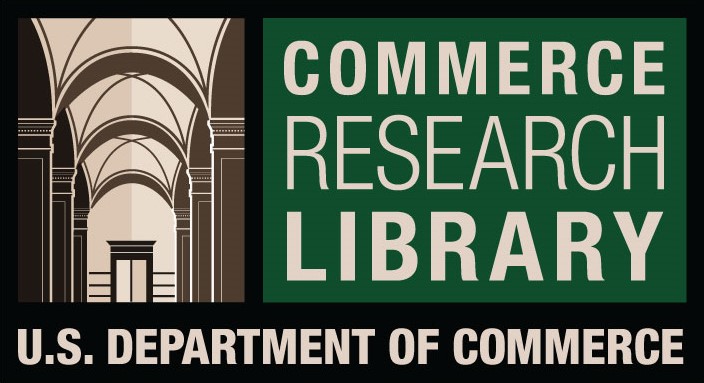District Education Department (PPD) Officials and Commitment to Change Practice
DOI:
https://doi.org/10.61841/mgaag030Keywords:
District Transformation Program,, Commitment to Change Practices, Age, Work Experience at PPD, Academic Qualifications and Training AttendanceAbstract
Various efforts have been devised to plan educational changes such as the District Transformation Program as outlined in the Malaysian Education Development Plan 2013-2025. The District Education Department (PPD) officials are consistently committed to implementing these changes. The research is aimed to identify the level of implementation of the PPD Transformation Program, the level of commitment to change practices and to identify differences in the commitment to change practices based on the demographics of the PPD’s officials. Descriptive survey method was used to gather information on the dimensions of the implementation of the PPD Transformation Program and commitment to change practices, while inferential survey was used to identify differences in commitment to change practices from the dimensions of affective commitment, continuation commitment and normative commitment based on demographics of PPD’s officials. A total of 400 respondents comprising of education services personnel from 13 PPDs in Malaysia were randomly selected. The findings indicate that the level of transformation of PPD is at a very high level of implementation whereby the guidance management and mentoring dimension indicates the highest score (mean= 4.43; SD=.26), followed by the enculturation dimension (mean=4.41; SD=.23), new goal setting dimension (mean=4.38; SD=.25) and restructuring dimension (mean=4.36; SD=.22). Next, commitment to change practices for affective commitment dimension is at a very high level (mean=4.42; SD=.33), meanwhile, continuation commitment dimension (mean=4.14; SD=.42) and normative commitment (mean=4.29; SD=.35) are at a very high level. The findings also indicate that there is no significant difference between commitment to change practices based on the demographics of PPD officials. The findings of this research show that PPD officials are fully committed to change management regardless of age, academic qualifications, work experience at PPD and training attendance in relation to PPD Transformation Program.
Downloads
References
1. Anuar Salleh, (2013). Pengaruh Perubahan Organisasi Sekolah dan Komitmen Guru Terhadap Kepuasan Kerja dan Tekanan Kerja. PhD thesis, Universiti Kebangsaan Malaysia, Selangor.
2. Betty Yuliani Silalahi, (2008). Kepemimpinan Transformasional, Motivasi Kerja, Budaya Organisasi,
dan Komitmen Organisasi. Jurnal Psikologi, 2(1): 14-20.
3. Davood Sadeghi, (2011). Alignment of arganizational changes strategies and it relationships with
increasing organizational performance. Procedia Social and Behavioral Sciences, 20: 1099-1107.
4. Farhana Mannan & Sailesh Sharma, (2017). Organizational Commitment of Secondary Schools Teachers in the Federal Territory of Kuala Lumpur. Educational Leader (Pemimpin Pendidikan), 5: 75-
87.
5. Idris Jusoh, (2014). Teks Ucapan Yang Berhormat Dato’ Seri Idris Jusoh. Persidangan Kebangsaan
Pengurusan Pendidikan.
6. Izani Ibrahim, (2014). Tahap Kecerdasan Emosi Pemimpin dan Kepimpinan Servant Serta Pengaruhnya
Terhadap Pengurusan Perubahan di Sekolah. PhD thesis, Universiti Utara Malaysia, Kedah.
7. Jamelaa Bibi Abdullah, (2012). Amalan Kepimpinan Instruksional dan Sikap Terhadap Perubahan dalam Kalangan Pengetua Sekolah Menengah di Negeri Pahang. PhD thesis, Universiti Kebangsaan
Malaysia, Selangor.
8. Jamil Ahmad, (2002). Pemupukan budaya penyelidikan di kalangan guru sekolah: Satu penilaian. PhD
thesis, Universiti Kebangsaan Malaysia, Selangor.
9. Lunenberg, F.C. (2010). Forces for and Resistance to Organizational Change. National of Educational
Administration and Supervision Journal, 27(4): 345-355.
10. Mohd Aizat Abu Hassan, Mohd Faizal Rabani, Mohamad Ekhwan Mohamad Shukor & Mohd Mastifino
Abdul Majid, (2018). Sikap Guru Terhadap Perubahan dalam Sekolah di Malaysia: https://www.researchgate.net/publication/327822043.
11. Muna Mohd Bookeri & Atasya Osmadi, (2013). Produktiviti dan Hubungannya dengan Komitmen dan
Kepuasan Kerja dalam Organisasi Pembinaan. Komitmen dan Kepuasan Kerja, 6: 1-15.
12. Norshidah Nordin, (2011). The Influence of Emotional Intelligence, Leaderships Behaviour and
Organizational Commitment on Organizational Readiness for Change in Higher Learning Institution. Procedia Social and Behavioral Sciences, 29: 129-138.
13. Ruth Alas, Maris Zeanand Vilsan & Maaja Vadi, (2012). Management Techniques in Estonian
Organizations: Learning Organizations and Business Process Reengineering. Procedia-Social and Behavioral Sciences, 62: 494-498.
14. Sii Ling Mee Ling & Mohammed Sani Ibrahim, (2013). Transformational Leadership and Teacher Commitment in Secondary Schools of Sarawak. International Journal of Independent Research and
Studies 2(2): 51-65.
15. Zamri Kamarudin, (2009). Hubungan Antara Profil Organisasi Pembelajaran dan Kesediaan Terhadap
Perubahan. Master thesis, Universiti Utara Malaysia, Kedah.
Downloads
Published
Issue
Section
License

This work is licensed under a Creative Commons Attribution 4.0 International License.
You are free to:
- Share — copy and redistribute the material in any medium or format for any purpose, even commercially.
- Adapt — remix, transform, and build upon the material for any purpose, even commercially.
- The licensor cannot revoke these freedoms as long as you follow the license terms.
Under the following terms:
- Attribution — You must give appropriate credit , provide a link to the license, and indicate if changes were made . You may do so in any reasonable manner, but not in any way that suggests the licensor endorses you or your use.
- No additional restrictions — You may not apply legal terms or technological measures that legally restrict others from doing anything the license permits.
Notices:
You do not have to comply with the license for elements of the material in the public domain or where your use is permitted by an applicable exception or limitation .
No warranties are given. The license may not give you all of the permissions necessary for your intended use. For example, other rights such as publicity, privacy, or moral rights may limit how you use the material.









